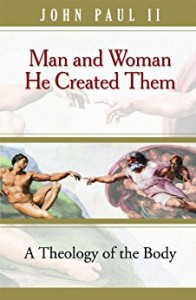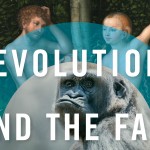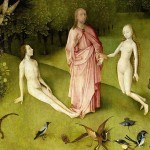“I think we are at a turning point,” Niels Erik Skakkebaek, a Danish fertility scholar and pioneer in this field, told me. “It is a matter of whether we can sustain ourselves.”
One recent study found that of sperm donor applicants in Hunan Province, China, 56 percent qualified in 2001 because their sperm met standards of healthiness. By 2015, only 18 percent qualified.
“The semen quality among young Chinese men has declined over a period of 15 years,” concluded the study, which involved more than 30,000 men.
 Oh, and it gets worse. It appears that some of our, as gender-theory-guru Judith Butler famously calls it, gender trouble, is human created (welcome to the Anthropocene–it’s not what you expected):
Oh, and it gets worse. It appears that some of our, as gender-theory-guru Judith Butler famously calls it, gender trouble, is human created (welcome to the Anthropocene–it’s not what you expected):
Perhaps even more alarming, Canadian scientists conducted a seven-year experiment on a lake in Ontario, adding endocrine disrupting chemicals and then observing the impact on fathead minnows. The chemicals had a devastating impact on males, often turning them into intersex fish, with characteristics of both sexes but incapable of reproducing.
The crisis for male reproductive health seems to begin in utero. Male and female fetuses start pretty much the same, and then hormones drive differentiation of males from females. The problem seems to be that endocrine disrupting chemicals mimic hormones and confuse this process, interfering with the biological process of becoming male.
How should we protect ourselves? Swan said she avoids plastics as much as possible, including food or drinks that have touched plastic or been heated in plastic. She recommends eating organic to avoid pesticide residues, and avoiding Tylenol and other painkillers during pregnancy. Receipts from thermal printers, like at gas pumps and A.T.M.s, are also suspect. When in doubt, she consults guides at ewg.org/consumer-guides.
When we combine this with the trends toward sex indifference and the worldwide population growth crisis, then we can begin to wonder whether the secular world is completely wrong in accusing Catholics of being obsessed with sex and fertility. Not to think about those things seems to me to be tantamount to the worst sort of nihilism and know-nothingism.
 These trends indicate the Catholic Church was right in standing up for organic sex in Humanae Viatae, later explicated by John Paul II in Man and Woman He Made Them. The following passage from the encyclical sure sounds a lot more humane and rational than an eagle-breeding style program for all of humanity:
These trends indicate the Catholic Church was right in standing up for organic sex in Humanae Viatae, later explicated by John Paul II in Man and Woman He Made Them. The following passage from the encyclical sure sounds a lot more humane and rational than an eagle-breeding style program for all of humanity:
The sexual activity, in which husband and wife are intimately and chastely united with one another, through which human life is transmitted, is, as the recent Council recalled, “noble and worthy.” (11) It does not, moreover, cease to be legitimate even when, for reasons independent of their will, it is foreseen to be infertile. For its natural adaptation to the expression and strengthening of the union of husband and wife is not thereby suppressed. The fact is, as experience shows, that new life is not the result of each and every act of sexual intercourse. God has wisely ordered laws of nature and the incidence of fertility in such a way that successive births are already naturally spaced through the inherent operation of these laws. The Church, nevertheless, in urging men to the observance of the precepts of the natural law, which it interprets by its constant doctrine, teaches that each and every marital act must of necessity retain its intrinsic relationship to the procreation of human life.
Remember when people used to call the Catholic position on human reproduction medieval? Now consider the possibility that the Middle Ages weren’t so terrible compared to our late modern fertility and sustainability nihilism. Also consider the possibility that, as John Paul II, Benedict XVI, and Francis have pointed out almost obsessively, we should take the degradation of the environment seriously. It was secular early modernity, Francis Bacon in particular, which advocated beating up nature so it yields its secrets. It never struck the early moderns that nature might hit back. This is why Benedict XVI thought that the loss of Creation (and the creature) are such pressing theological problems.
Suggested reading: Humanae Viatae by Paul VI (and JP2 as ghostwriter); Man and Woman He Made Them by John Paul II; Silent Spring by Carson; Gender Trouble by Butler; Collected Poems by Smith; Francis Bacon and the Rhetoric of Nature by Briggs; The Natural Contract by Serres; In the Beginning by Ratzinger.
Note to self: This might also be time for me to read the P.D. James novel Children of Men, or watch the movie.
The song below from Monty Python’s Meaning of Life doesn’t seem all that funny in retrospect, does it?
Today’s post is part of a longer Lent series on Catholic sex which includes (in reverse chronological order): Why is the Catholic Experience of Sex so Different from the Protestant Experience of Sex?; Who Knew Sex Helps You to Experience God’s Presence in the World?; and Increasingly Secularized Americans Are Sexless, But Catholics Might Be Bucking the Sex Trends
Please consider making a donation to this blog through the donation button on the upper right side of its homepage to help us with the rising costs of medical insurance. We’re barely making ends meet each month. We’re too fertile to be financially viable, apparently.
Stay in touch! Like Cosmos the in Lost on Facebook:











